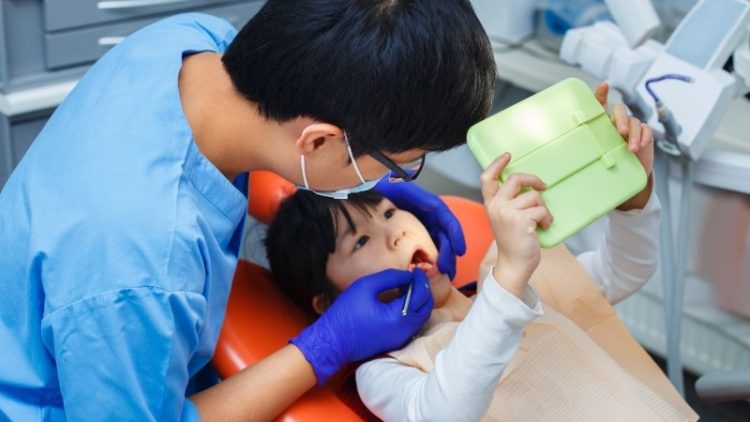Introduction
Getting children to brush their teeth can be a challenging task for many parents. While maintaining oral hygiene is critical for children’s overall health, it is often met with resistance, tantrums, or plain disinterest. The key to overcoming these obstacles lies in the approach. This essay will explore effective and practical strategies for encouraging children to brush their teeth regularly, making it a fun, engaging, and consistent part of their routine.
1. Why Brushing Teeth is Important for Kids
- Health Risks of Poor Oral Hygiene:
Poor dental habits in childhood can lead to cavities, gum disease, and even more serious issues later in life. Regular brushing helps remove plaque, food particles, and bacteria that cause tooth decay. - Long-Term Benefits of Good Oral Hygiene:
Starting good dental habits early sets the foundation for healthier teeth and gums as children grow. It also reduces the chances of needing costly dental treatments as they get older.
2. Why Do Kids Resist Brushing?
- Developmental Stage and Behavior:
Children go through stages of independence, and during these periods, brushing might feel like a chore to them. Toddlers and young kids often don’t understand the long-term consequences of poor oral care, leading to resistance. - Attention Span Issues:
Young children might find it difficult to focus on brushing for two minutes, which can make the activity feel like a task rather than a fun habit. - Parental Challenges:
Parents are often unsure of how to encourage brushing. Repeated arguments or lack of motivation can lead to inconsistent routines.
3. Making Brushing Fun and Engaging
- Brushing Games and Songs:
Turning brushing into a game is a great way to encourage children. There are plenty of children’s toothbrushes that come with timers and interactive features. Brushing songs or games that count down the time for brushing can make it more enjoyable. - Fun Toothbrushes and Toothpastes:
Kids love products that are visually appealing, such as toothbrushes with their favorite characters or brightly colored toothpaste. Letting kids choose their toothbrush and toothpaste empowers them and makes brushing feel like an exciting activity. - Reward Charts:
A reward system, such as a sticker chart, can encourage children to brush their teeth consistently. Rewards can include extra playtime or a small treat after a week of consistent brushing.
4. Establishing a Routine
- Set Regular Brushing Times:
Consistency is key. By brushing at the same time every day, such as after breakfast and before bed, kids will start to expect it as part of their daily routine. - Parents as Role Models:
Children learn by observing their parents. Brushing your own teeth at the same time can serve as an example and motivate them to follow suit. - Brushing Together:
Brushing teeth together as a family can make it a bonding experience. Children are more likely to brush if they see their parents doing it too.

5. Positive Reinforcement Over Punishment
- Praise and Encouragement:
Complimenting your child for brushing their teeth properly can be more effective than punishing them when they resist. Positive reinforcement builds confidence and motivates them to continue the habit. - Avoiding Negative Associations:
Punishing your child for not brushing could create a negative association with the act. Instead, focus on the positive aspects of good oral care and make it something to be proud of.
6. How to Tackle Fear or Anxiety Around Brushing
- Start Early with Oral Care:
The earlier you start brushing your child’s teeth, the less likely they will develop fear or resistance. Cleaning their gums even before they have teeth can make them accustomed to the process. - Address Dental Fears:
Some children are afraid of the dentist, and this can affect their willingness to brush. Talking about the dentist in a positive, non-threatening way and letting them know it’s part of staying healthy can reduce fear. - Introduce the Concept Gradually:
If your child is particularly resistant, try introducing them to the idea of brushing in a gradual way. You can start by letting them hold the toothbrush and play with it before progressing to actual brushing.
7. Using Technology to Help with Brushing
- Brushing Apps:
There are a variety of fun, interactive apps designed to help kids brush their teeth for the recommended two minutes. These apps use games and rewards to make brushing more engaging. - Electric Toothbrushes:
For some children, using an electric toothbrush can be a fun way to keep them motivated. Many electric toothbrushes for kids come with timers and character designs that make brushing more enjoyable.
8. When to Start and How to Be Consistent
- Starting Early:
As soon as your child’s first teeth appear, it’s a good idea to begin cleaning them. Using a soft cloth or baby toothbrush and fluoride-free toothpaste is a good place to start. - Consistency is Key:
Establishing a consistent brushing routine early on helps create a habit. Even if your child resists, staying firm and consistent will eventually lead to them brushing regularly. - Making Brushing a Family Habit:
When everyone in the household is brushing at the same time, it becomes a shared activity. This not only models good behavior but also strengthens the routine for your child.
9. Dental Visits and Their Role in Encouraging Good Oral Hygiene
- Early Dentist Visits:
The American Academy of Pediatric Dentistry recommends scheduling a child’s first dental visit by their first birthday. Early visits help children become familiar with dental care and set the stage for good oral hygiene. - Involving the Dentist in the Process:
When your child sees that the dentist cares about their oral health, they may be more likely to want to brush regularly. Pediatric dentists are skilled at talking to kids in a way that reduces fear and promotes good habits.
10. The Long-Term Benefits of Encouraging Brushing
- Healthier Teeth for Life:
By encouraging your child to brush their teeth regularly, you’re helping them avoid serious oral health problems like cavities and gum disease in the future. - Self-Esteem and Confidence:
Healthy, clean teeth help children feel good about themselves. When kids know they have a bright, healthy smile, it boosts their confidence and self-esteem.
Conclusion
Encouraging your child to brush their teeth consistently doesn’t have to be a battle. By incorporating fun, consistency, positive reinforcement, and early education into their daily routine, parents can set their children on the path to a lifetime of good oral health. It’s important to remember that creating these habits takes time, patience, and effort, but the rewards are well worth it in the long run.













































Discussion about this post